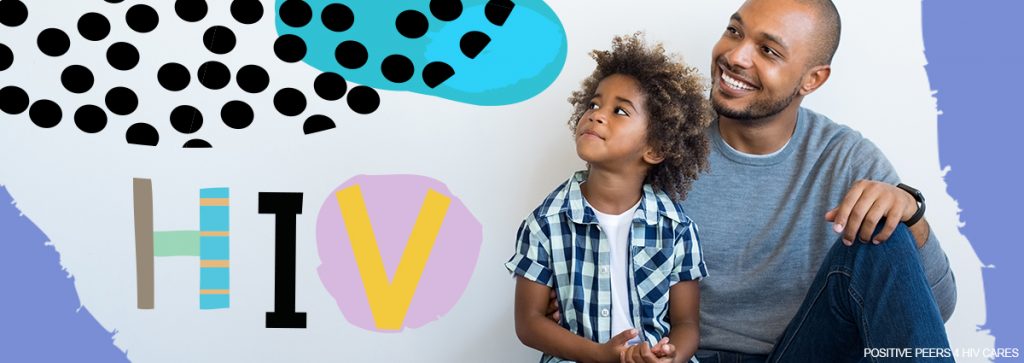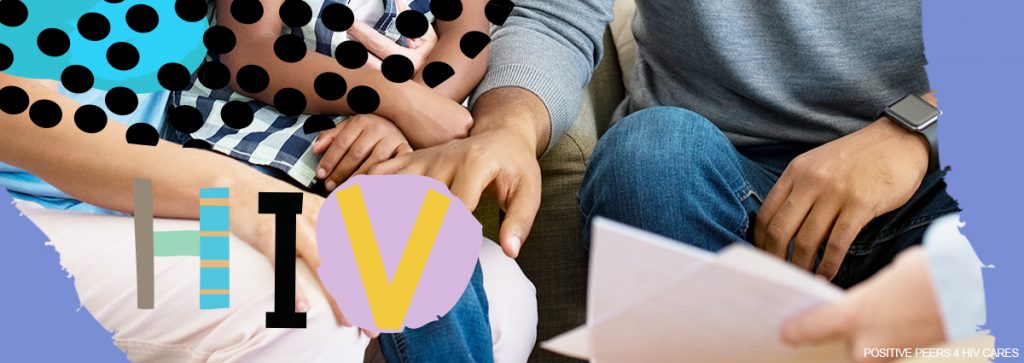
By: Jennifer McMillen Smith, LISW-S, HIV Social Worker at MetroHealth Medical Center and medically reviewed by Ann K. Avery, MD, Infectious Disease Physician at MetroHealth Medical Center
Making the decision to tell anyone about your HIV status can be tough. That’s especially true when it comes to deciding to tell your own children.
Every family is different. There is no one good answer that fits every family. YOU are the expert on your family. Trust your judgment on when you think it is time to disclose, for you and your child. As you’re thinking about talking to your kids, just remember these three important things:
- Your child loves you unconditionally.
- Children are stronger and adapt more quickly than you might think.
- Kids are smart. Your child might already suspect something is up, especially if you’ve been sick or in the hospital. If you don’t tell them what’s going on with your health, they are left to wonder, or imagine something that’s even worse!
It may be best for your kids to hear it from you that you’re living with HIV. Otherwise, they may wonder why you were hiding it. That can make a tough situation worse. But you can take control of this tough conversation, provide reassurance and guidance, and strengthen your bond with your children.
Like everything dealing with kids, you have to be careful how you tell them your status, depending on their age, maturity, and ability to deal with information they don’t really understand.
These tips can help you figure things out:

Prepare yourself for the conversation
Talk to other people before you talk to your kid. Ask your doctor, social worker, counselor, friends, and family for advice. Run it by the folks in your support group.
Most likely, somebody who’s been through it already can help you out. Just remember, you’re not the only one who has been in this position.
Ask your clinic if they have any handouts or brochures with HIV information you can give to your kids. Take some time to read up on the causes of HIV and how the virus works. We’ve covered the basics here:
- HIV in the body: The HIV life cycle
- The stages of HIV and AIDS
- What are CD4 counts and viral loads?
- HIV lab tests: Understanding your CD4 and viral load results
Load these pages on your phone or computer and make sure you have them handy when talking things over with your child.
Knowing the facts will help you explain the disease to children who know nothing about it. Also, think about their age and ability to handle stressful or frightening information.
Come join our private, stigma-free, supportive community.
Health management tools with medication & appointment reminders.
Social networking in a community conversation & private chats.
Schedule the conversation and start talking
Schedule a specific time to have the talk — putting it on your calendar helps you commit to it and avoid the urge to put it off. Choose a quiet place where your child will feel safe and can’t be easily distracted. Turn off the TV, phones, and anything else that might interrupt you.
You’ll have to adjust what you say according to the age of your child.
- Preschoolers: Keep explanations simple, such as “I’m sick, but I’m OK if I take my medicine every day.”
- Age 7-10: You can explain more about the disease, as your kids are becoming old enough to understand the concepts of viruses and infections.
- Age 11-13: In the middle-school age range, kids are old enough to be told the details of your treatment and the potential social issues like stigma and discrimination.
- Age 14-18: Teens can be given more detail about your treatment and how to avoid becoming infected themselves.
Children of any age should probably be reassured that people cannot get the disease by hugging or sharing a snack with someone who has it.
You can’t forget privacy when revealing your status to children. The younger ones may unwittingly tell people who have no business knowing your status. If you or your family become the subject of gossip, your kids may have to deal with social isolation.
Give your kids a chance to ask all the questions they want. Be patient with them and give plenty of space for their feelings. If they don’t want to talk to you, help them find a counselor they can talk with.

Keep your lines of communication open
Once your children know your status, you’ll need to keep them up-to-date on what it means to you and the whole family.
As the kids mature, you can use your experience to teach them the fundamentals of HIV, especially how it spreads and how they can avoid becoming infected. Help them understand that HIV is serious business — it can make people extremely sick if they don’t get into treatment.
Make clear that there’s nothing shameful about HIV. Your kids can still be proud of you and the rest of their family. HIV can’t take that away.
Finally, remember that children are resilient, can accept the truth, and will love you. They have a huge capacity for love and understanding.
Related Blogs:


